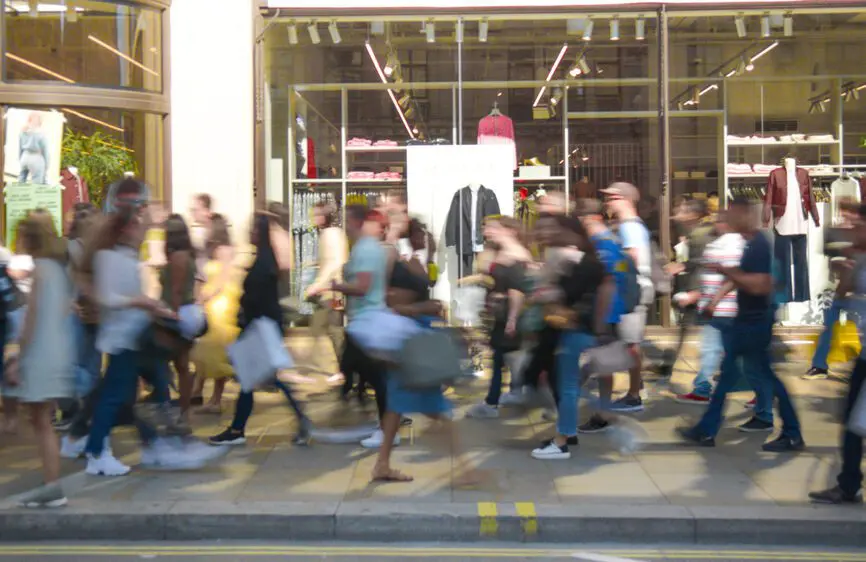Bioethics Forum Essay
Moving On from Covid? Immunocompromised People Can’t
I am immunocompromised. This has been an aspect of who I am for all 52 years of my life. In my case, this means I am much more likely to be infected when exposed to viruses, bacteria, and fungi, and the duration and severity of infections I develop are typically greater than for people who are not immunocompromised. My infections have resulted in vision loss and damage to major organs.
My perspective on being immunocompromised has recently changed. Prepandemic, I largely viewed my health vulnerability as my problem. Yes, I was aware that the behavior of others–for example, colleagues who decided to show up to work and share their viruses–were direct threats to my short-term and long-term health. Though fortunate to always have had loved ones and medical professionals who worked with me to ensure the best possible health outcomes, I had convinced myself that responsibility for my health and survival belonged solely to me. This changed during the past two-and-a-half years.
Immuno-prioritized
At first, we–Americans, as well as many people around the world–were baffled by what Covid-19 meant for us. But gradually we realized that if we did not take collective action this novel virus would threaten us all. We prioritized our immune system health, washing our hands more frequently, masking, socially distancing, and factoring in risk levels to our everyday lives. For many, that meant a crash course in virology 101 and the intricacies of the immune system. For those of us who are immunocompromised, it meant that a large part of society was getting a glimpse into what we were doing prior to the pandemic–making constant and tedious choices about our engagement with other people by weighing risks to our health.
But it was obvious that this degree of immune-prioritization would not last. Not just because health precautions were politicized, but because the narratives we used to encourage and support these protective behaviors were primarily self-centered–what can I to do to protect myself and my loved ones –as opposed to other-centered–what can I to do to help ensure the safety and survival of all?
Immuno-jeopardized
Because the changes in behavior were primarily self-centered, the impetus for continuing protective measures quickly dissipated with the rising perception that the threat was over. After President Biden prematurely declared the pandemic over and the director of the Centers for Disease Control and Prevention no longer recommended masks, Americans returned to pre-pandemic behavior. Life is largely back to normal for many people. The problem is that the pandemic is not over. The U.S. has an average of 325 Covid deaths per day. This may seem tolerable to some, but for those of us who are immunocompromised the risk of Covid leading to severe infection and death persists. This fact was underscored by the White House Covid-19 response coordinator’s recent comment that “the main tools we’ve had to protect the immunocompromised, like Evusheld, may not work moving forward.” Thus, the decision to move on from practical health precautions to mitigate the spread of an airborne virus that is not becoming milder is jeopardizing the health and survival of the immunocompromised. My hope is that there are enough people who know and care about someone who is immunocompromised, or are just generally kind-hearted and open to considering the health risk their behavior poses to others, that we may be able to negotiate a compromise going forward.
Immune compromise
The best case scenario for immunocompromised people like me would be universal masking in all public spaces. Masking reduces the spread of the Covid-19 virus, as well as other airborne viruses such as respiratory syncytial virus and influenza, and lifting masking requirements has increased the spread of Covid-19 in places like schools. Though universal masking would be ideal, based upon my read of current sentiment, and contrary to my own best interest, I am willing to compromise.
It may be too much to ask for mask mandates in public places that people can choose to avoid, including restaurants, bars, museums, stadiums, and theaters. However, there are some foundational protections that immunocompromised people will need. At the least, it is imperative that universal masking be required in essential spaces–medical care facilities (doctors’ offices, hospitals, clinics), long-term care settings (day care, group homes, nursing homes), pharmacies, grocery stores, public transportation, schools, and in our homes. It is also essential for our employers to enable us to do our jobs in environments that do not threaten our health. For some this may involve remote work options. But for those whose jobs cannot be done remotely, this will require creative solutions that help us stay safe while working, including but not limited to ADA accommodations, high-quality air filtration, flexible work hours, modified leave policies, socially distanced work spaces, virtual options for meetings, and decreased travel.
I recognize that those who are not immunocompromised are ready to move on. Please understand that many of us who are immunocompromised deeply desire this as well. But we know that the current strategies for moving on are not viable for our health and survival. What I am asking is that those who are not immunocompromised help ensure that essential spaces are safe for those of us who are more vulnerable. Our lives depend on your willingness to compromise.
Scott D. Landes, PhD, is an associate professor of sociology at Syracuse University. @scottdlandes













